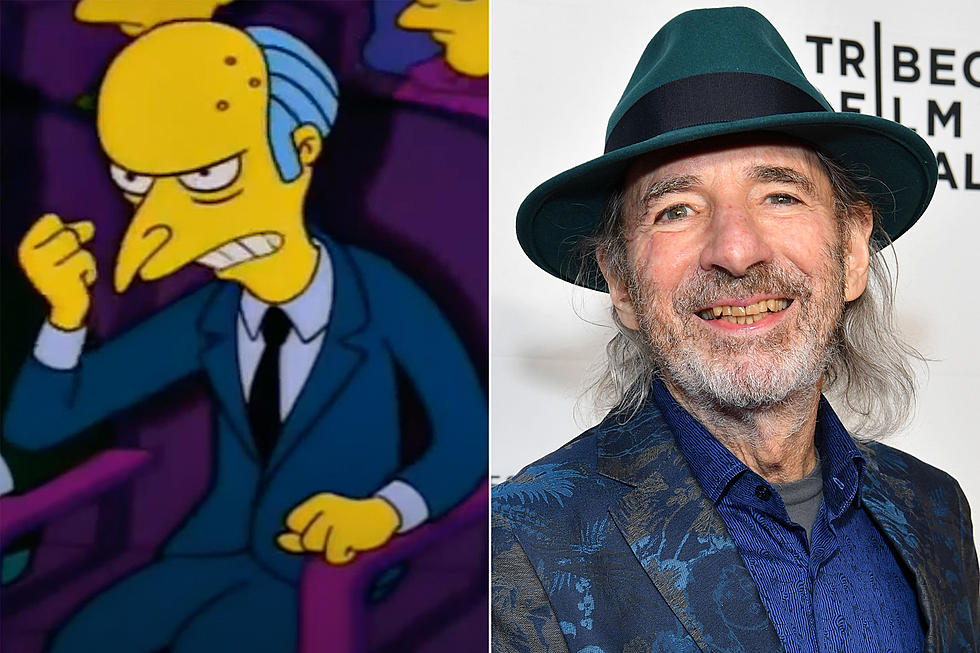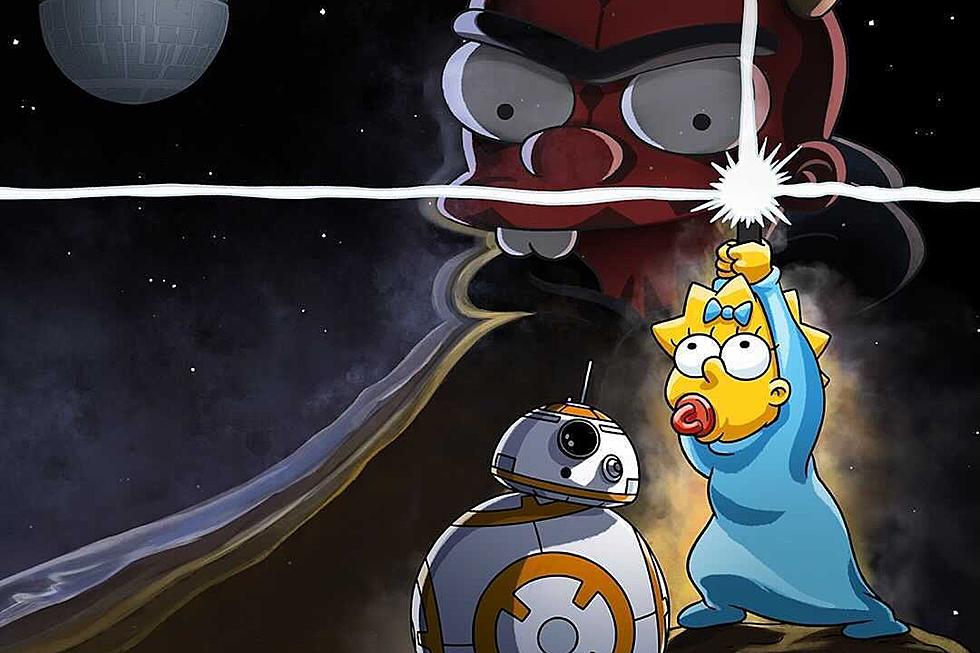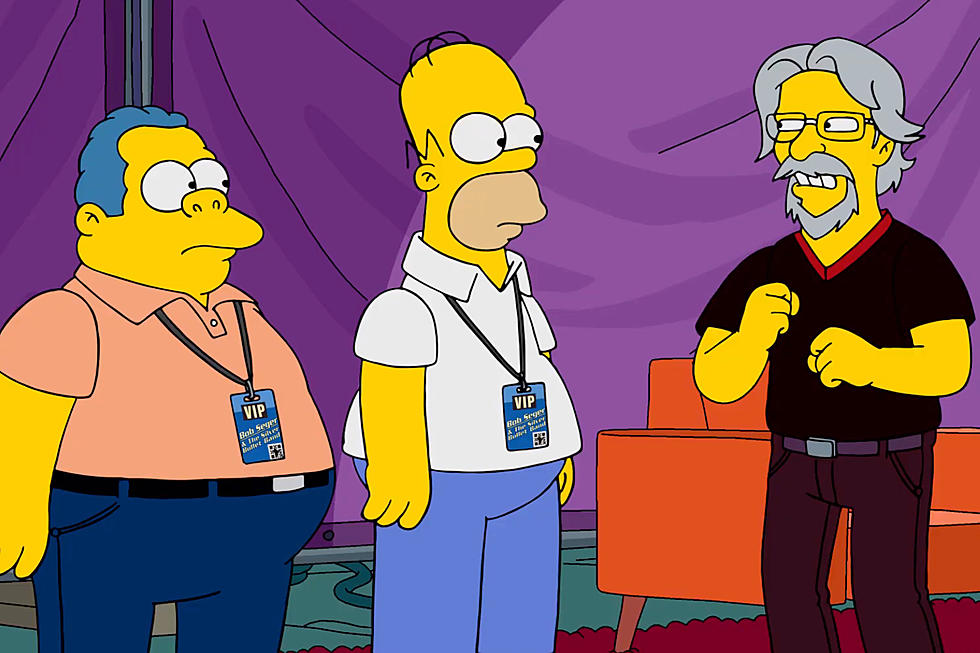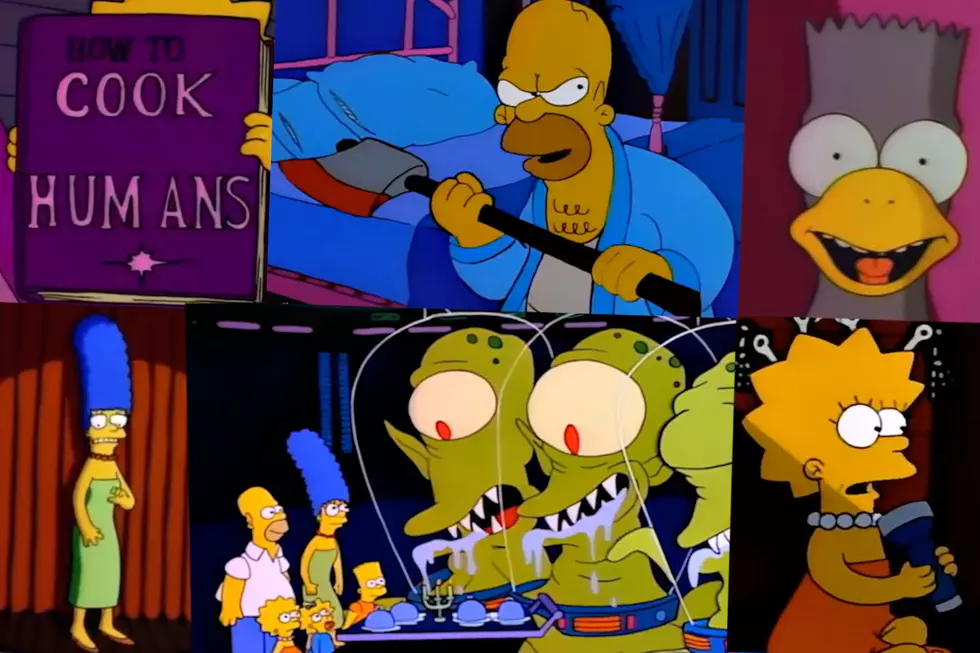
How Harry Shearer Found the Voice of ‘The Simpsons” Mr. Burns
“I just made a noise and hoped they wouldn’t stop me.” That’s how Harry Shearer (Saturday Night Live, The Truman Show) describes the moment when he first did the voice that became a signature element for the personality of the acerbic Mr. Burns on The Simpsons.
More than 30 years later, Shearer and Burns are still closely linked, thanks to the animated comedy series, which continues its reign as the longest running American sitcom.
It’s just one section (and one of many voices) in what has been a fascinating career for the endlessly creative actor, also celebrated for his work as Derek Smalls, bassist for heavy metal legends Spinal Tap, among many other things.
Since the early ‘80s, he’s also been hosting Le Show, which offers a look at the worlds of media, politics, cyberspace, sports and show business while providing an eclectic array of music along the way. In a sense, the program grew out of his ‘70s work on the radio comedy The Credibility Gap, an ensemble which also featured his future Tap collaborator Michael McKean.
He spent some time recently discussing his career with UCR, including the radio show, which has also become a popular podcast.
You've been hosting Le Show for close to 40 years now. What was the spark that got you started?
The spark was that I’ve been in and around radio pretty much all of my life. I started as a child actor at the age of seven on Jack Benny’s radio show. I never was interested in doing standup [comedy]. The idea of entertaining drunks at one in the morning wasn’t that appealing. I floated around to a public radio station that was in my hometown and said to them, basically, let me do a show! They did and it’s gone on all of this time.
The person who ran that station, basically was one of the first people to say, “Let’s make it a podcast as well.” So it’s been a podcast for quite a while. It continues to basically be my comedy playground. Like everybody else, I put up with the nonsense of the world, but I get to react to it in a satisfying nasty and satirical manner and make fun of whoever is in charge and their associates. One thing about the podcast, I can guarantee two things. It's free, and you'll never hear me do a mattress commercial.
It seems like a great way to stay engaged with everything that's going on and also, it gives you an outlet to just discuss anything you might want to talk about, right?
Yes, and to write an original comedy sketch or an original song every week and perform them. It just keeps the instruments in tune and it keeps me sharp for anything else I might want to do. But it really is a way to entertain people. Also, increasingly, inform people. Because I’m privileged to both technologically and in terms of some volunteers, have access to information that isn’t normally on most other outlets. It’s a chance to keep people a little more informed.
As you're aware, we're constantly dealing with more and more misinformation in the world. With the satirical nature of the program, did that change and influence how you approached doing your show?
Yes, very dramatically. In the run up to the Iraq War, I was watching and listening to media from Britain and Australia as well as here. So I learned the names of the three scientists in charge of non-proliferation of weapons in the intelligence agencies of Britain, Australia and in the case of the United States, the intelligence agency inside the state department.
They were publicly saying, before the war started, what we were being told was the intelligence, was not the intelligence. I knew about them, but their names were not said on American TV news or NPR, for that matter. So I was able to share that information on my radio show. That changed my view of the show. I felt, hey, I can have access to this information, I have a microphone, why don’t I put the two together.
How often are you surprised by people who pick up on what you're doing with the radio show? Does that happen a good amount?
Oh yeah. Especially, strangely enough, in New Orleans where I live. I get more people recognizing me just off the street from the radio show than from all of the other stuff I do here. Famous people and not famous people. It’s fun to walk around here. For many reasons and that’s one of them.
There was a satirical story years ago about how Billy Joel couldn't go to a party without being asked to play "Piano Man." Now, that's satire, but how true has that been for you over the years with the voices that you do?
I’ll tell ya, people are pretty good about that. I’m not a big party person anyway, but in social situations, I get almost none of that. It’s just on the street, every once in a while. My favorite version of it is that someone will walk up to me, they’ve got a five year old in tow and they’ll say, “Would you do the voice of Mr. Burns for little Danny here?” I know that Danny doesn’t give a good goddamn about it. The kid is a prop. They want to hear it.
Watch Some of Mr. Burns Best Moments From 'The Simpsons'
You mentioned your early days as a child actor. I know you got to know Mel Blanc. What did you glean from Mel in those years about doing voices that was fascinating to you?
Absolutely nothing. He was a very, very lovely man towards me. I was the same age as his son. He rescued me from a couple of dodgy situations. I really just loved him almost as a quasi-parental figure. But he never said, “Hey kid, here’s how you do cartoon voices.” I never thought that’s where I was going anyway. I thought I was going to be in show business as a child and then have a serious career, but it didn’t turn out that way.
I was listening to a podcast recently where Dana Carvey was discussing doing impressions with Darrell Hammond. They broke down the science of finding the right voice for some of the voices that they've done over the years. For you, what is the character voice that you really enjoyed finding?
Mr. Burns. It’s fun doing a character that’s pure evil. It’s not a voice I’d ever heard before. It’s not a voice I ever heard a real person have. So it was just an invented voice. I’m fortunate, you see, I don’t think there’s a science to it. I sort of quiver at that word. It’s more like an art. The art, it sort of reminds me a lot of songwriting. Which I do, but my wife, Judith Owen, does amazingly.
You’re basically the recipient of something really wonderful that comes through the ether. Some people will attribute a deity to it, I call it the Federal Express guy, who comes with an idea or with a voice. The Federal Express guy in the sky. It’s just that you have to be receptive to these various things that will come to you. But I never think of sitting down and analyzing it. That’s not the way I approach it at all. It’s much more intuitive and sort of, “Thank you, thank you for that!” That’s what I say to the Federal Express guy in the sky.
How easy was it to get the voice of Mr. Burns where you wanted it?
It just came out. That's when I mean, I think it changed from season one to season two a little bit, because I never had the chance to hear season one. Eight months later, when we started season two, season one was not yet on the air. So it migrated a little in pitch, but otherwise, no, I just made a noise and hoped that they wouldn’t stop me.
Top 100 Classic Rock Artists
More From KOOL 101.7










